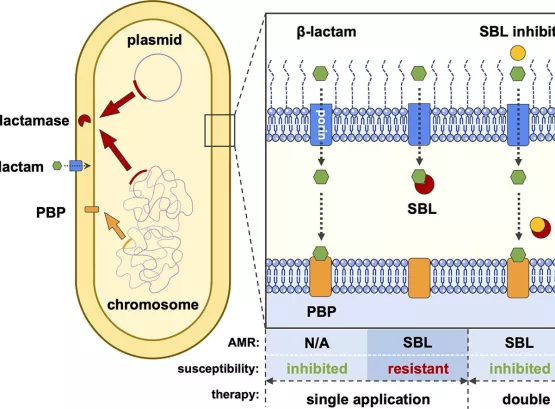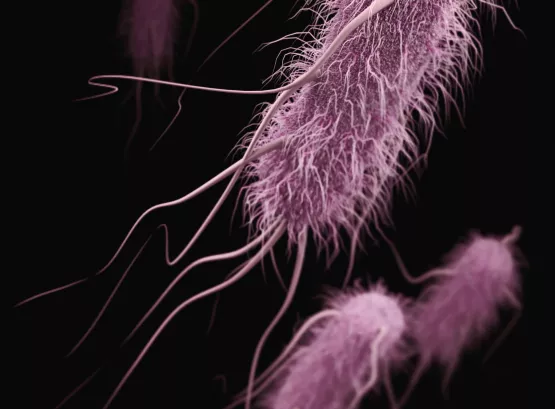Researchers at the Ineos Oxford Institute for antimicrobial research (IOI) at Oxford University and Fujian Agriculture and Forestry University in China have found that prolonged exposure to triclosan, a common antibacterial disinfectant used in consumer products like soap and sanitiser, leads to increased antibiotic resistance in bacteria.
The study published in Nature Communications used multiple techniques such as differential fluorescence labelling of plasmids and donors, FACS cell sorting and sequencing to study how exposure to triclosan (TCS) impacts the evolution of resistance in Klebesiella pneumoniae (K. pneumoniae), a bacterium that causes infections such as pneumonia and sepsis in humans.
Researchers found that a few hours exposure led to the development of TCS-resistant mutants of K. pneumoniae. Mutated bacteria showed increased resistance to several clinically important antibiotics, including colistin, ciprofloxacin and fosfomycin.
TCS-resistant K. pneumoniae mutants were more susceptible to conjugation by multidrug-resistant plasmids, meaning plasmids carrying antibiotic resistance genes were more likely to pass those genes to recipient bacteria.
Interestingly, scientists found that the specific mutation (nsrR deletion) that led to increased uptake of multidrug-resistant plasmids by the bacteria also led to increased susceptibility to K. pneumoniae bacteriophages. Bacteriophages are highly specific viruses that infect and kill bacteria.
This suggests that while TCS resistance can lead to increased antibiotic resistance in bacteria, it also makes bacteria more vulnerable to bacteriophages. Future work to develop phage therapy to treat antibiotic-resistant infections will be crucial to tackle the rise of drug-resistance.
Triclosan is used widely in products we use every day from soaps and toothpastes to detergents and dishwashing liquids. The implications of our study are disconcerting as it shows that this everyday product will cause collateral-damage on the use of effective antibiotics by increasing antimicrobial resistance. As some point in the future, triclosan will stop being effective in killing bacterial pathogens.
However, it is encouraging to see that resistance caused due to prolonged use of triclosan renders the strains more sensitive to bacteriophages. This is an interesting observation and demands more research given the increase in phage clinical studies.

The study illustrates how bacteria can evolve rapidly when exposed to triclosan, and result in cross-resistance to clinical important antibiotics. This adaptation occurs through genetic mutations and horizontal gene transfer, posing great challenges in healthcare and environmental settings.




